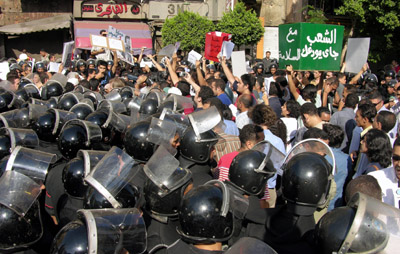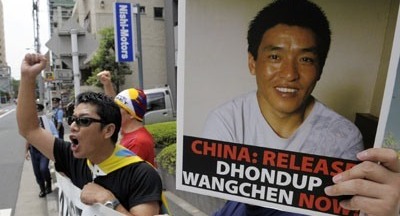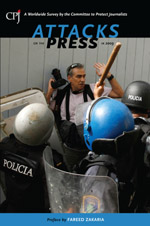
CPJ launches yearly findings globally, and is heard
On February 16, CPJ held an ambitious international launch of our annual report Attacks on the Press. We coordinated events in six cities on four continents in order to expand the reach of our international headlines while also focusing on specific issues in each region. So how did we do?

Human rights coverage spreads, despite government pushback
By Mohamed Abdel Dayem and Robert Mahoney The media in the Middle East loved the Intifada. Every detail of Israel’s violations of human rights in the late 1980s in the West Bank and Gaza appeared in the Arabic and Farsi press. The governments that owned or controlled these media outlets loved it, too. When pan-Arab…
Attacks on the Press 2009: Egypt
Top Developments• Government is among the region’s worst oppressors of online expression.• Several editors fined for reporting on the president and other sensitive topics. Key Statistic 3: Online journalists imprisoned as of December 1, 2009. Authorities followed familiar tactics to control news media, pursuing politicized court cases, imposing fines, using regulatory tools, and harassing journalists. With Egypt…
Egyptian journalist sentenced to prison for defamation
New York, February 4, 2009—The Committee to Protect Journalists condemns an Egyptian criminal court’s decision on Tuesday to sentence a journalist to one year in prison and a fine of 60,000 Egyptian pounds (US$10,500) on criminal charges filed by another journalist who is also a member of parliament.

CPJ’s 2009 prison census: Freelance journalists under fire
New York, December 8, 2009—Freelancers now make up nearly 45 percent of all journalists jailed worldwide, a dramatic recent increase that reflects the evolution of the global news business, the Committee to Protect Journalists said today. In its annual census of imprisoned journalists, CPJ found a total of 136 reporters, editors, and photojournalists behind bars…
An Egyptian blogger crosses red lines
When the Gulf War broke out in 1990, the world watched the horrors of conflict on live television. It caused a massive leap in media. When the Internet became widely accessible later that decade, the exchange of information in a single second signaled the dawn of another new age. News not only proliferated, it could…
Audio Report: Middle East Bloggers
In our special report “Middle East Bloggers: The Street Leads Online,” CPJ’s Mohamed Abdel Dayem says blogging has become a crucial front in the region’s struggle for freedom of expression. Here, Abdel Dayem describes how two regional trends–booming Internet audiences and repression of traditional media–have made blogging a vibrant news alternative. Listen to the mp3…
Robert Mahoney writes about Egyptian bloggers in CJR
A piece in the Columbia Journalism Review raised questions about CPJ’s support of several bloggers in Egypt. The article draws a distinction between journalists who report facts and bloggers who deal in opinion and the promotion of causes. In a companion piece, CPJ Deputy Director Robert Mahoney argues that in a country like Egypt, where…

